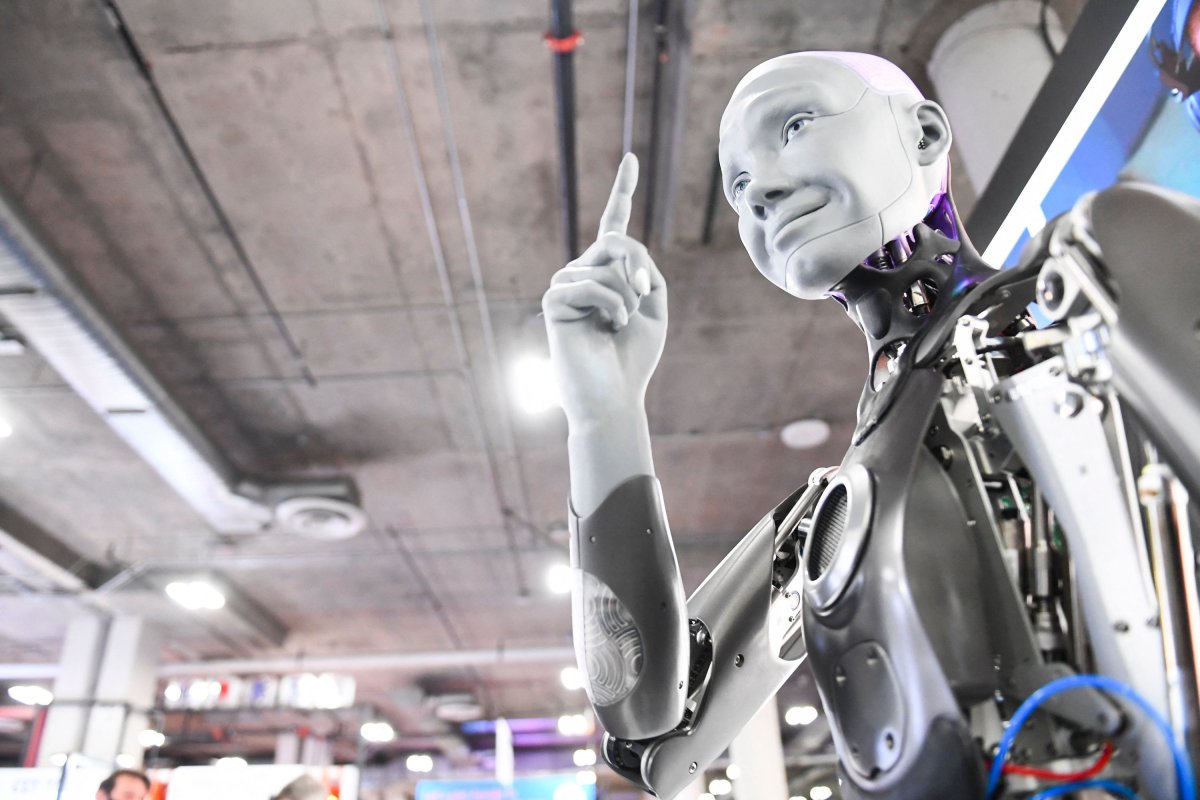Artificial intelligence (AI) is poised to fundamentally challenge the way we establish trust and credibility in our society. The 20th century saw a new model of credibility emerge, dominated by mass media—especially television—and university credentials. Universities created an elite class skilled in managing appearances and words, and these gained broad reach via mass media. People assumed someone was credible if he looked and sounded good—in essence, creating an aristocracy of image and of letters.
This extended to many domains: an MBA program would, more than anything else, teach someone to look and sound like a business leader. In a society that judged credibility on the basis of image and words, large businesses came to be run by people who mastered these skills. In academia, those who mastered the use of signals grew in influence, perhaps explaining the relative rise of administrators compared with pure scholars. In media, anchors and commentators—masters of image and language—grew to edge out reporters in status and influence.
These signals—a polished image and polished words—conveyed real meaning. This was not because they necessarily guaranteed competence or leadership capability in a particular domain, but because excelling at using them was hard. The skills necessary to do so were typically developed through years of hard work in elite universities, corporations, and professional firms. The ability to project a polished image and professional language, and the connections needed to attain relevant media reach, became visible signals of that effort—a heuristic that allowed people to assume broader credibility.
Digital technology has already diminished the value of these markers of credibility. The internet has vastly reduced the cost of sharing words or images, degrading their perceived value as signals of true capability or accomplishment. Instagram filters make it easier for far more people to present a "TV-quality" image. Social media broke the near-monopoly legacy media enjoyed on mass distribution, and allowed growing arrays of competition and challenge to legacy elites.
The advent of mass AI is set to take this trend to the next level. The possibility of "deep fakes" means that images can no longer be trusted as a source of information, rendering them meaningless when it comes to establishing credibility. Similarly, advancements in AI-powered language models like ChatGPT will make it easy for anyone to sound like a well-educated professional—wielding language skills that traditionally reflected years of schooling and corporate experience, further undermining the value of words as markers of credibility.
These developments will have far-reaching consequences. Schools and universities will face AI-generated submissions, undermining their traditional tests. Businesses will struggle to identify capable employees, as the credentials they relied on become watered down. Political leaders skilled at mastering their image in a TV context will find they no longer convey the same credibility and influence. The very concept of expertise—something people traditionally associated with professional-sounding tone and language—will lose the signal that has given credibility to its purveyors.

In sum, even setting aside questions of whether legacy elites merit credibility, the signals traditionally used to communicate their status will become nearly meaningless. Our trend toward a lower-trust society will accelerate unless alternatives emerge.
I do not believe a collapse in trust is inevitable. Rather, the emergence of suitable alternative signals of credibility will become a central problem of our era. Two themes are likely to emerge as we look for new and reliable signals of credibility. First, we will see a rise in demand for the judgments of recognized leaders within communities that remain high-functioning and high-trust—in essence, a return to human communities as principal mediators of trust, as opposed to the more institutionalized intermediaries that dominated the 20th century.
Second, we will see a rise of signals requiring meaningful skin in the game—particularly courageous actions, which reflect risks that cannot be faked. While such signals may not guarantee truth or broader competence, they at least signal something, in contrast with the increasing meaninglessness of images and words. This alone will draw attention and, with it, the ability to persuade and build broader credibility.
These complement each other: tight-knit communities allow the rise and recognition of credible leaders because they are rich in opportunities to demonstrate one has skin in the game. In such communities, people risk their personal reputations and relationships in a wide array of interactions, in ways that anonymous or distant interactions often lack. Likewise, costly signals and courageous actions only generate credibility if the risk or action is also judged to be correct or virtuous—something communities aligned around a shared understanding of truth and the good can recognize.
Both tight human communities and costly or courageous actions have been major foundations of credibility throughout history, and as the signals that dominated the 20th century recede, we should expect these to rise again.
Nate Fischer is the CEO and co-founder of New Founding, a platform to organize and connect the growing community of people who will build the ventures that revitalize America in the digital age.
The views expressed in this article are the writer's own.
Uncommon Knowledge
Newsweek is committed to challenging conventional wisdom and finding connections in the search for common ground.
Newsweek is committed to challenging conventional wisdom and finding connections in the search for common ground.
About the writer
To read how Newsweek uses AI as a newsroom tool, Click here.






